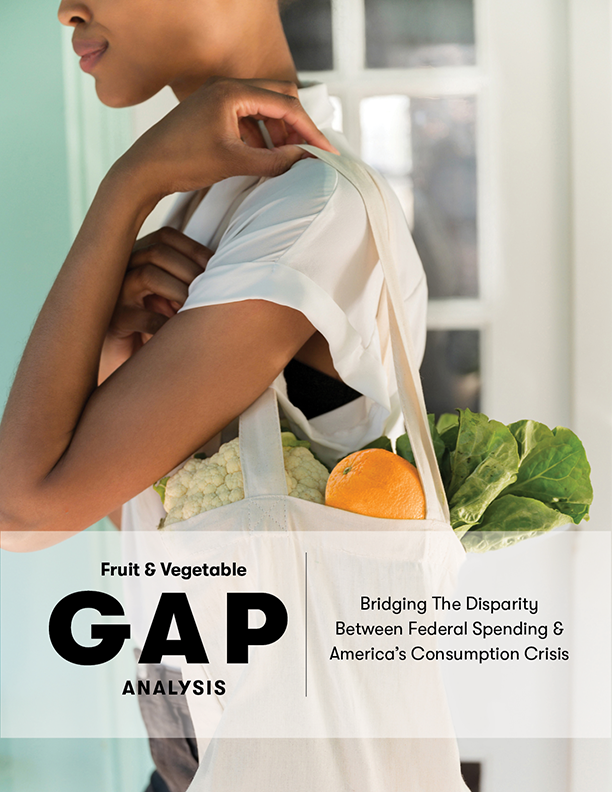Produce For Better Health Foundation Releases Gap Analysis Identifying Opportunities To Bridge The Disparity Between Federal Spending & America’s Consumption Crisis
CONTACT:
Katie Calligaro, Marketing & Communications Director
Produce for Better Health Foundation
[email protected]
412-848-1644
PBH Calling On All Industry & Public Health Stakeholders Vested In Fruit & Vegetable Consumption To Submit Public Comments Through February 4, 2022

January 5, 2022 – The evidence is clear: Poor diets have a significant impact on overall health and disease risk, and when defining healthy diets, the importance of fruit and vegetable intake is well-established in the scientific literature and in United States food and nutrition policy.
Despite well-established evidence on the health and wellness benefits of eating fruits and vegetables, nine out of 10 Americans do not eat the recommended amounts of fruits and vegetables each day. Given its commitment to comprehensive consumption research, the Produce for Better Health Foundation (PBH), in partnership with Nutrition On Demand (NOD), today released the DRAFT Fruit & Vegetable Gap Analysis: Bridging The Disparity Between Federal Spending & America’s Consumption Crisis report, which for the first time ever, will be open for a 30-day public comment period. Public comments will be considered for integration into the report’s final analysis, results, and recommendations, which will be issued later in 2022.
“We are experiencing a chronic fruit and vegetable consumption crisis in America that is affecting our health, our society and our economy. The Fruit & Vegetable Gap Analysis illuminates several opportunities to increase the focus on fruits and vegetables within all levels of government research, feeding and nutrition education initiatives to meaningfully address America’s consumption gap and improve public health,” stated Wendy Reinhardt Kapsak, MS, RDN, President & CEO of PBH.
The approach to the Fruit & Vegetable Gap Analysis represents a robust and collaborative effort that includes subject matter experts, as well as key thought and opinion leaders. With a combined 15+ years of government service, the NOD senior leadership team led the data collection, analysis, and insight generation in partnership with the PBH – the key change agent in the movement to increase fruit and vegetable consumption. Specifically, the analysis assesses publicly available government data to examine how key government agencies currently fund efforts to assist Americans with increasing their consumption of fruits and vegetables – and, importantly, identifies gaps and opportunities to enhance these initiatives to ensure federal spending aligns with current dietary guidance.
“Fruits and vegetables are consistently two of the most under-consumed food groups in America – yet Congress largely does not earmark funds for their promotion. This has a significant trickle-down effect on the Departments and Agencies responsible for promoting public health and, ultimately, the consumer,” says Shelley Maniscalco, MPH, RDN, founder and owner of Nutrition On Demand. “This report strives to be as transparent and detailed as possible so that it can be replicated and utilized by others. In addition, all public comments are encouraged. We want to hear from all who feel strongly about improving public health through fruits and vegetables.”
The most recent Fruit & Vegetable Gap Analysis is rooted in the 2010 and 2015 GAP Analyses, yet does not directly replicate the previous studies as data sources and the current environment warrant new methodological approaches.
The DRAFT Fruit & Vegetable Gap Analysis report is now open for a 30-day public comment period and can be accessed at: https://fruitsandveggies.org/gapanalysis/.
All vested stakeholders committed to improving public health through fruit and vegetable consumption are encouraged to review the report and submit comments, either in the body of an email or as an attachment (with all relevant scientific research and references also attached to support perspectives as necessary) to [email protected] by Friday, February 4, 2022.